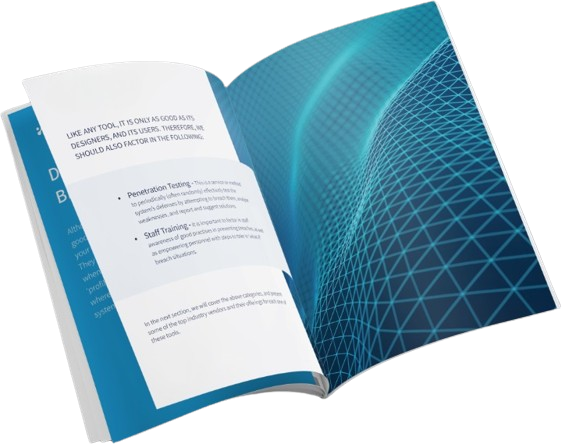When it comes to securing top valuation for loan collateral, it’s essential to consider various factors that determine the value and attractiveness of the collateral to lenders.
The type of asset plays a significant role, but it’s not the only factor at play. Other critical aspects include the asset’s liquidity, market demand, and potential for depreciation.
By understanding these factors and strategically positioning your collateral, you can maximize its valuation when securing loans.
Key Takeaways
- Thorough market research and proactive monitoring ensure top collateral valuation.
- Efficient management of assets’ depreciation, maintenance, and market demand is crucial.
- Regular assessment of credit risk and collection efficiency enhances collateral value.
- Strategic adjustments based on market trends and asset conditions optimize loan collateral worth.
Real Estate
Looking to secure top valuation for your loan collateral in real estate? Understanding property value and market trends is crucial for maximizing the worth of your real estate assets. Property value is a key factor in determining the potential loan amount you can secure. By keeping a close eye on market trends, you can ensure that your property is valued at its highest potential, thus increasing your chances of obtaining a favorable loan valuation.
Market trends play a significant role in influencing property values. Monitoring factors such as supply and demand, interest rates, and economic indicators can give you valuable insights into the current state of the real estate market. By aligning your loan collateral with the prevailing market trends, you position yourself for a higher property valuation, ultimately leading to better loan terms.
To secure top valuation for your loan collateral in real estate, it’s essential to conduct thorough research and analysis of property values in your area. By leveraging market data and staying informed about industry trends, you can make informed decisions that maximize the value of your real estate assets. Stay proactive in monitoring market developments to ensure that your loan collateral remains competitive and valuable in the eyes of lenders.
Equipment
Understanding the valuation and market dynamics of equipment assets is crucial for maximizing their worth as loan collateral. When considering equipment as collateral, factors like equipment depreciation and asset maintenance play a significant role in determining its value. Equipment depreciation refers to the decrease in value over time due to wear and tear or technological advancements.
To secure a top valuation for loan collateral, it’s essential to maintain equipment regularly to minimize depreciation and uphold its value.
Moreover, the option of equipment leasing can impact its value as collateral. Lenders often consider leased equipment differently than owned equipment due to potential risks associated with ownership transfer. Lease agreements may restrict the borrower’s ability to use the equipment as collateral or require the lender’s consent. Additionally, when evaluating equipment for its resale value, lenders assess factors such as market demand, condition, age, and technological relevance.
To ensure that equipment maintains its value as collateral, focus on proper maintenance, documentation, and regular assessments. By staying proactive in managing equipment depreciation and maximizing resale potential, you can strengthen the equipment’s position as valuable loan collateral. This approach not only benefits lenders but also enhances your ability to secure loans at favorable terms using equipment assets.
Inventory
When assessing inventory for loan collateral, its turnover rate and market demand are critical factors determining its valuation. Proper inventory management and valuation strategies can significantly impact the perceived value of inventory as collateral.
Here are three essential points to consider:
- Inventory Turnover Rate: Lenders often consider how quickly a business can sell its inventory when assessing its value as collateral. A high turnover rate indicates efficient inventory management and suggests that the inventory is in demand, making it a more attractive asset for securing a loan.
- Market Demand: Understanding market demand for the inventory is crucial. Items that are in high demand and have a stable market are generally viewed more favorably by lenders. Monitoring market trends and adjusting inventory levels accordingly can help mitigate supply chain risk and increase the perceived value of the inventory.
- Inventory Financing: Utilizing inventory financing can also impact its valuation. This form of financing uses the inventory as collateral for a loan, providing businesses with working capital. Lenders may be more willing to offer favorable loan terms if they see the inventory as a reliable and liquid asset that can be easily converted into cash if needed.
Accounts Receivable
To ascertain the value of accounts receivable as loan collateral, analyzing their aging schedule is a crucial step in evaluating their liquidity and potential risk factors. The aging schedule categorizes receivables by the length of time they’ve been outstanding, providing insights into their credit risk and collection efficiency. Understanding the composition of accounts receivable based on their aging can help lenders assess the likelihood of repayment and the overall quality of the collateral.
Credit risk is a key consideration when using accounts receivable as collateral. By examining the aging schedule, lenders can identify any overdue or delinquent accounts that pose a higher credit risk. Receivables that have been outstanding for an extended period may indicate potential issues with the debtor’s ability to pay, signaling increased credit risk for the lender.
Collection efficiency is another critical factor in evaluating accounts receivable as loan collateral. The aging schedule allows lenders to gauge how quickly receivables are being collected. A high proportion of current receivables suggests efficient collection practices, reducing the risk of default. Conversely, a significant number of past-due accounts may point to collection challenges and lower collection efficiency, impacting the collateral’s value. By analyzing the aging schedule, lenders can make informed decisions about the creditworthiness of accounts receivable and their suitability as loan collateral.
Investment Securities
Analyzing the market value and liquidity of investment securities is essential in determining their suitability as collateral for loans. When considering using investment securities as loan collateral, it’s crucial to assess various factors to mitigate risks and maximize benefits.
Key Points:
- Risk Management and Asset Diversification:
- Investment securities can serve as valuable collateral due to their ability to help manage risks and diversify assets.
- By pledging investment securities, borrowers can showcase a diversified portfolio, potentially lowering the overall risk profile and increasing the attractiveness of the collateral.
- Market Volatility and Liquidity Constraints:
- Market volatility can impact the value of investment securities used as collateral, affecting the loan-to-value ratio.
- Liquidity constraints may arise if the investment securities offered lack market depth, potentially leading to challenges in selling the collateral quickly if needed.
- Enhancing Collateral Value through Analysis:
- Conducting thorough market assessments and stress tests on investment securities can provide insights into potential risks and liquidity issues.
- Regular monitoring of the investment securities’ market performance is essential to adapt to changing market conditions and ensure the collateral’s continued suitability.
Frequently Asked Questions
How Do Intangible Assets Affect the Valuation of Loan Collateral?
When it comes to how intangible assets affect collateral valuation, brand value and intellectual property play crucial roles. Your brand’s strength and unique offerings can significantly impact the perception of risk and potential return for lenders.
Intellectual property, such as patents or trademarks, adds a layer of security to the collateral. These assets can enhance the overall valuation of the loan collateral, providing assurance to lenders and potentially securing top valuation.
What Role Do Personal Guarantees Play in Securing a Top Valuation for Loan Collateral?
When considering the role of personal guarantees in securing top valuation for loan collateral, it’s essential to assess legal implications and risk factors.
Third-party appraisals and market trends can influence the outcome significantly. Personal guarantees provide lenders with added assurance, demonstrating commitment and strengthening collateral value.
Understanding the legal framework around personal guarantees is crucial for risk assessment, ultimately impacting the overall valuation of loan collateral.
Can a Borrower’s Credit History Impact the Valuation of Loan Collateral?
Your credit history can significantly impact the valuation of loan collateral. Lenders assess credit risk to determine the borrower’s reputation and ability to repay.
A strong credit history can lead to a higher appraisal value for collateral, providing better security for the loan. Conversely, a poor credit history may lower the valuation, increasing the lender’s perceived risk.
Therefore, maintaining a positive credit record is crucial for securing top valuation for loan collateral.
How Does the Overall Financial Health of a Company Influence the Valuation of Loan Collateral?
When assessing loan collateral, the overall financial health of a company plays a crucial role. Financial stability, driven by strong revenue growth, healthy profit margins, and manageable debt levels, enhances the valuation of collateral.
Additionally, industry trends impact this assessment, as sectors experiencing growth and stability can bolster the perceived value of collateral assets. Understanding these factors can help you secure top valuation for loan collateral.
Are There Any Regulatory Considerations That Can Impact the Valuation of Loan Collateral?
Regulatory requirements play a crucial role in shaping how loan collateral is valued. Market trends also influence this process. Understanding the impact of these factors can help you navigate the complexities of securing top valuation for your collateral.
Stay informed about any changes in regulations and market conditions to ensure that your collateral is accurately valued and meets the necessary standards for securing a loan.
Final Thoughts
When securing top valuation for loan collateral, it’s crucial to carefully consider the type of assets being offered. Real estate, equipment, inventory, accounts receivable, and investment securities are all valuable options.
By diversifying your collateral and ensuring its quality and marketability, you can increase the likelihood of obtaining a favorable loan valuation. Remember, the strength of your collateral can greatly impact the terms and conditions of your loan. Choose wisely and secure the best valuation possible.



